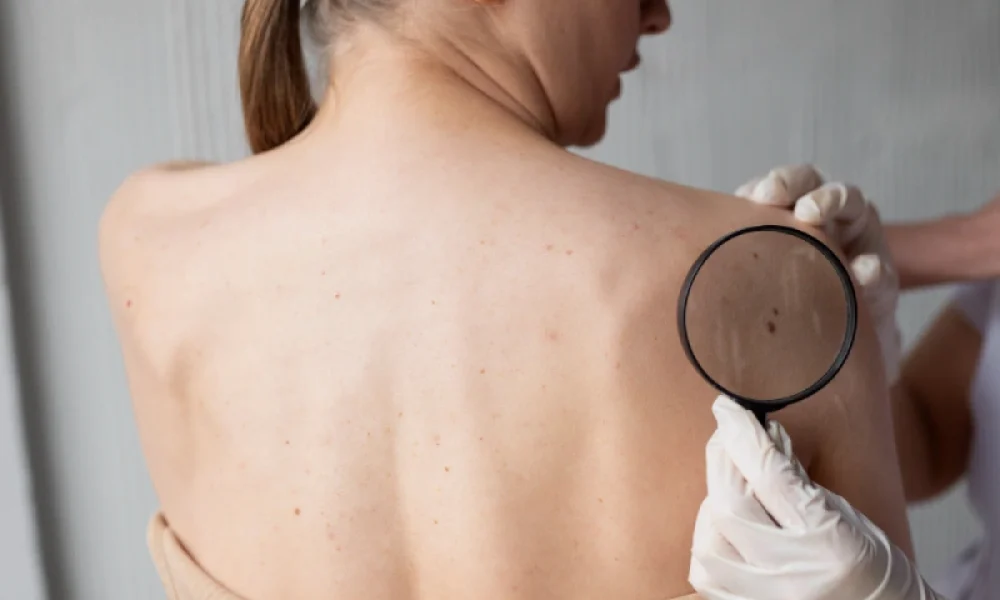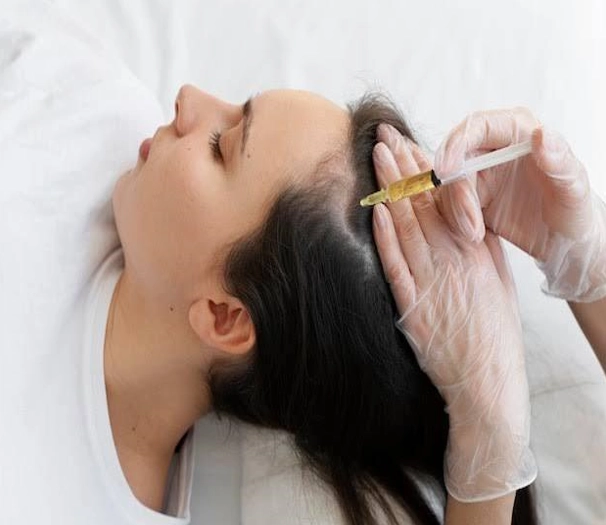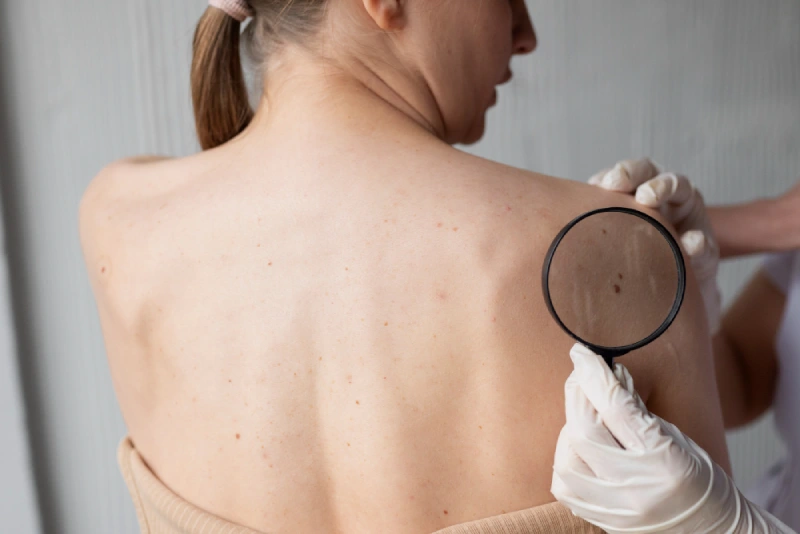What are Hives, and What Are its Causes?
Hives, scientifically termed as urticaria, typically start as itchy patches and evolve into welts of varying sizes. These welts might be as tiny as a fingertip or as broad as a dinner plate. Occasionally, multiple smaller hives might merge to form larger areas known as plaques. For those with lighter skin tones, these hives usually appear pink or reddish and can pale when pressed.
Hives generally emerge due to skin swelling in response to the immune system’s reaction to certain stimuli. These hives can surface and recede seemingly at random and can persist for several days or even longer. The beginning of urticaria can be acute, as a result of exposure to allergens, or more prolonged and chronic. While acute hives often dissipate within a week, less than 40% of such cases transition into chronic hives. Chronic hives persist for over six weeks, frequently reoccurring over extended periods. The cause of chronic urticaria isn’t always apparent.
Beyond the presence of intensely itchy welts, chronic hives can also manifest symptoms like painful swelling around areas like the eyes, cheeks, lips, hands or feet, a condition known as angioedema, warranting immediate medical attention.
Causes of Hives
Hives typically occur when the immune system releases mediators, such as histamine, into the bloodstream in reaction to a trigger. Mast cells, immune cells found within the skin and other organs, release these mediator chemicals when activated. These chemicals play a role in activating sensory nerves, dilating blood vessels, causing plasma leaks, and recruiting inflammatory cells.
Common triggers for hives include temperature extremes, sunlight, exercise, skin pressure from tight clothing, emotional stress, certain foods, medications, and various allergens like pollen, dust mites, and animal dander. While allergic reactions are usually linked to acute hives, various factors can lead to elevated histamine levels in the body, including food exposure, stress, hormonal shifts, and more. Additionally, some individuals are inherently more sensitive to histamine due to genetic factors or gut health issues.
Certain genetic aspects underlie the predisposition to urticaria. Moreover, individuals with medical conditions like asthma, allergic rhinitis, and eczema are more prone to hives. Contrastingly, chronic hives are less frequently linked to allergies. They might be connected to infections or medical conditions like autoimmune diseases. Most of the time, no clear cause for chronic hives is identified, they are termed as chronic spontaneous urticaria or chronic idiopathic urticaria.
Integrative Treatment for Hives
At Nature of Skin Dermatology, our holistic dermatology clinic believes in an integrative approach for hives. We don’t just target the symptoms; we aim to uncover and mitigate potential triggers in your diet, surroundings, and lifestyle.
Nutrition
Diet plays a pivotal role in managing hives. By embracing a diet enriched with anti-inflammatory, low-histamine foods, you can reduce the body’s histamine levels and alleviate hives’ discomfort.
What to Avoid: Processed foods, sugary items, alcohol, certain fermented products, and some meats might exacerbate inflammation. It’s worth noting that foods like fermented dairy, certain fruits like citrus and avocado, specific seafood, and even leftovers can have high histamine levels, potentially worsening hives.
What to Include: Freshly prepared meals are the key. Opt for fresh meats, selected seafood like cod and salmon, non-citrus fruits, and various fresh vegetables. Foods like eggs, quinoa, rice, coconut milk, and olive oil are generally low in histamine and can be included.
Supplements & Herbs for Hives Treatment
At Nature of Skin Dermatology, beyond diet adjustments, the right supplements can be beneficial in managing hives. Supplements like Diamine Oxidase can be helpful to treat hives. There are several other supplements that may help hives as well. Our integrative dermatologist will be sure to create an individualized for you that addresses your Hives holistically.
Relaxation Techniques
Stress is a known factor that can exacerbate or even trigger hives in some individuals. Incorporating relaxation techniques can be a beneficial aspect of a holistic approach to hives management.
Deep Breathing: Regular deep breathing exercises can calm the mind and reduce the body’s stress response. This relaxation method involves taking slow, deep breaths, which can help relax the mind and body, potentially reducing the severity or frequency of hives outbreaks.
Meditation: Meditation centers the mind and eases tension throughout the body. Regular meditation sessions offer a tranquil space for self-reflection and relaxation, potentially alleviating stress-induced hives flare-ups.
Yoga: A practice that combines physical postures with controlled breathing and meditation, yoga offers a comprehensive relaxation method. Regular yoga practice can enhance flexibility, improve blood circulation, and reduce stress – all factors contributing to a holistic management approach for hives.
Acupuncture
A Traditional Touchpoint Acupuncture, a time-honored practice, has shown promise in alleviating symptoms associated with chronic hives. By targeting specific acupuncture points can bring about relief and reduce hive flare-ups. It’s believed that these points play a role in balancing the body’s energy and improving immune responses, which can, in turn, help in managing hives. If acupuncture could be helpful for you, our integrative specialists will be sure to include that in your treatment plan.
Elimination of Causes and Avoidance of Triggers
Recognizing and sidestepping triggers play a pivotal role in hives management. For those sensitive to airborne allergens, investing in a quality HEPA air filter for the home can significantly reduce the influx of potential triggers. Simple habits, like leaving shoes and outerwear at the door, can minimize the transfer of outdoor irritants, such as pollens and molds, indoors.
Lifestyle adaptations also prove beneficial for many suffering from hives. Opting for breathable, loose-fitting clothes can prevent further skin irritation. It’s also advisable to use gentle laundry detergents devoid of harsh chemicals, fragrances, or dyes. As temperature fluctuations can often lead to flare-ups, those with hives should avoid extreme temperature variations, especially hot showers, when possible.
Manage Stress
A direct link has been observed between stress and outbreaks of hives. For many, the body’s response to prolonged stress can exacerbate the frequency and severity of hives. Therefore, effective stress management strategies are crucial for mental well-being and managing and reducing hives’ occurrence.
Regularly incorporating relaxation techniques and mindful practices can provide a buffer against the harmful effects of chronic stress. Simple acts can offer significant relief, such as setting aside moments for deep breathing, indulging in a hobby, or scheduling short breaks during the day.
Avoiding continuous strenuous work without breaks is vital. Overextending oneself without giving the body and mind time to rejuvenate can amplify stress, making it essential to recognize when to step back and take a moment.
Best Integrative Solutions for Hives in Austin, Texas
Hives can be a discomforting and perplexing skin condition for many. At Nature of Skin Dermatology in Austin, we understand the intricacies of this ailment and the importance of a holistic approach. Combining the expertise of an all-natural dermatologist with the insights of a holistic skin specialist, our team offers a unique blend of modern and traditional treatments tailored for you.
Our belief is simple: nature and science, when combined, can offer unparalleled results. Whether exploring holistic treatments of hives or seeking a natural skin doctor near me, our clinic stands out as a beacon of holistic dermatology in Austin. Why choose us? We provide patient-centric care rooted in years of research, practice, and understanding, ensuring that your journey to healthier skin is effective and enlightening.
Embark on a new skincare journey with the best in alternative medicine dermatology. Connect with Our Expert Holistic Dermatology Clinic Today!
Disclaimer: The information provided on the site is for educational purposes only, and does not substitute for professional medical advice. Consult a medical professional or healthcare provider if you are seeking medical advice, diagnoses, or treatment.




